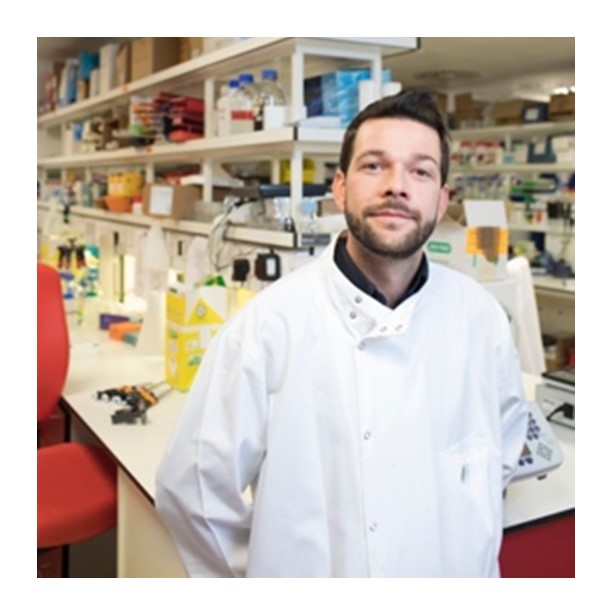 University College London
University College London
Twitter: @Leo1401j
Theme 4: Cross-reactive Coronavirus Immunity
We’re trying to find out why some people can be exposed but never get infected (is it because they have immune memory from a similar virus that protects them? Or their immune system responds quicker than others?).
Why and when did you become interested in studying immunology?
I had one lecture as part of my Zoology degree on emerging zoonotic infections and loved it but only decided to work in Immunology when I did the graduate scheme at Public Health England.
What inspires you?
I’ve just followed the thing I most enjoyed through school, university, then in jobs and ended up a scientist. I love learning new things. You don’t say ‘no I am an immunologist I don’t need to learn about metabolism, zoology, psychology, physics, etc.’ - you learn bits of everything when you need to.
What are your challenges?
I am not a natural presenter and don’t enjoy giving talks but there is no point in discovering something important if you don’t tell anyone about it, so I am trying to get better.
What skills have you gained from outside academia that you use in your research?
Some scientists find maths hard, but I like using my maths skills to investigate patterns in complicated data. I’m a super tidy organised scientist but anyone can be a scientist even if you’re messy and unorganised but great in other ways (like explaining science or having great ideas).
What is your passion outside of research?
I am passionate about football (Chelsea) and cycling, music, drawing, pre-pandemic travelling, now lockdown gardening and baking, and trying to keep my houseplants alive!
What does your average week look like?
What I like most about being a scientist is that every week is different. I always cycle to the lab, always have coffee (essential) and then it’s an unpredictable mix of experiments, looking at results, making nice graphs, writing, reading, teaching, and giving talks.
What did 2020 mean to you?
It meant having a very small wedding, having knee surgery, and seeing how research into a whole new disease grew from almost no knowledge to all that we know now. The year was a change from trying to learn decades of knowledge we already have about other infections to contributing to something completely new.
What has been your most shared social media post of the pandemic?
The most shared post was a retweet of a graphic showing the use of the Oxford-Astra-Zeneca vaccine in low-income countries, which is great because it’s important to recognise the great work COVAX and others are doing to get vaccines rolled out worldwide and how inexpensive vaccines that are able to be manufactured on huge scales are key.
